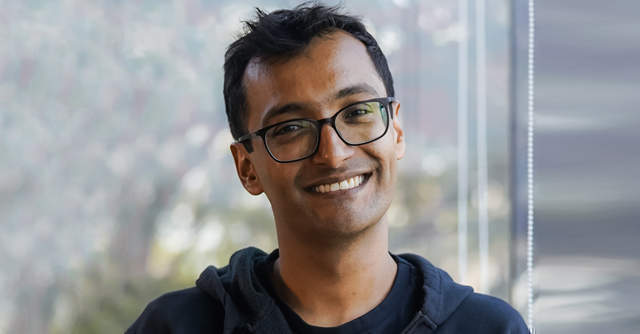
Dunzo CEO Kabeer Biswas on the shift to a predictable hyperlocal platform, growing B2B logistics as a separate biz


Hyperlocal delivery service provider Dunzo Digital, which completed the raising of a $40 million growth funding round on Tuesday, has found its mojo in delivering consumables. The category will be a big focus area for the Bengaluru based startup as it looks to go deeper into its fastest growing cities including Mumbai, Chennai and Pune.
The startup also plans to hive off its B2B logistics offering into a separate entity to grow the vertical, co-founder and CEO Kabeer Biswas told TechCircle in an interview.
The company saw losses mount over 100% year-on-year for the financial year ended March 31, 2020, on account of increased marketing spends and business promotions.

In the pipeline are plans to change the interface to make it easier for customers to order their grocery runs easily and a food court concept which helps customers order from multiple brands at a go. Biswas also spoke about experiments which have worked, upcoming updates to the platform and how the startup has been able to build a playbook for profitability across its most mature markets in recent months.
Edited excerpts:
Coming out of the pandemic, how have you cut costs across operations?

We have shut down growth costs on the platform and 95% of our growth is organic right now. That was a large shift and helped us rewire our expenditure. Also a lot of our order volume has not grown much due to the migration in big cities.
We have had to rationalise roles, around 5 to 7% of the people at Dunzo were moved to other roles as the order volumes did not grow on par with expectations in certain geographies.
The pandemic helped local stores to update their inventory better on Dunzo and our out-of-stock numbers have gone down. This has led to our average basket size to grow by 2X, going to a weekly basket perspective. That has driven profitability as the amount of money we were generating per order has gone up by 75%.

Following the latest fundraise, what would be your focus areas in the near and medium term?
When we started out, we were a convenience based product. We found a sweet spot with early adopters. Now we are seeing more middle of the belly customers come in who are not necessarily looking for convenience but are looking for value for money, price parity. They are not looking for the fastest way to deliver but efficient delivery service. This will see changes in our interface and merchant networks.
These customers come to Dunzo only for maybe 500 items and how do we enable them to add those items quickly. For them we want to become a daily or weekly use case. We will see changes in the interface in three months time. We are making the kirana run efficient for these customers.

The change will be from being convenient as a platform to being reliable and predictable as a platform.
Are you also looking to expand your dark stores to serve consumers with the frequently ordered SKUs?
We were testing the dark warehouses to see what level of efficiency we can drive for the items the consumers want.

We worked with our marketplace merchants and asked them to set up dark warehouses when we are sure there is demand. We asked them to set up a warehouse which is delivery only, built with the working capital and manpower from the merchant. We tell them what to stock, how much to stock and where to order the items from so that they get higher margins.
We experimented in Bengaluru and Pune. We are keeping Bengaluru for now where we want to double down. We have 10 stores in Bengaluru now. The potential commissions these partners can offer us is also higher.
How is the business-to-business (B2B) vertical growing for you?

We are going to house our B2B hyperlocal delivery business in a separate entity entirely. We are seeing massive traction and 10% of our overall volume is coming from this. We believe that this business will be a different kind of growth driver and the entity can be a bigger business than Dunzo overall.
We have this offering which every merchant wants but can we build a merchant focused operating-system on top of it -- where we are not just logistics partners but they help them with running their store operations better. It is still early but we want to double down on this.
What’s the update on your bike taxi foray? Are there other experiments in the pipeline?
It (bike taxis) continues and we have only launched Jaipur with it. The regulation is not clear enough for us to launch in metros. Till the regulations are clear we will continue to run it in one city and as an experiment.
Another experiment we are running is a Food Court -- where consumers can order multiple brands on a single platform. It is live in some cities and we are seeing good traction.
Will the recent fundraise fuel any acquisitions?
We keep looking for adjacencies which will help us grow into a full-fledged merchant OS and we have had a few conversations. Nothing we are close to signing.
